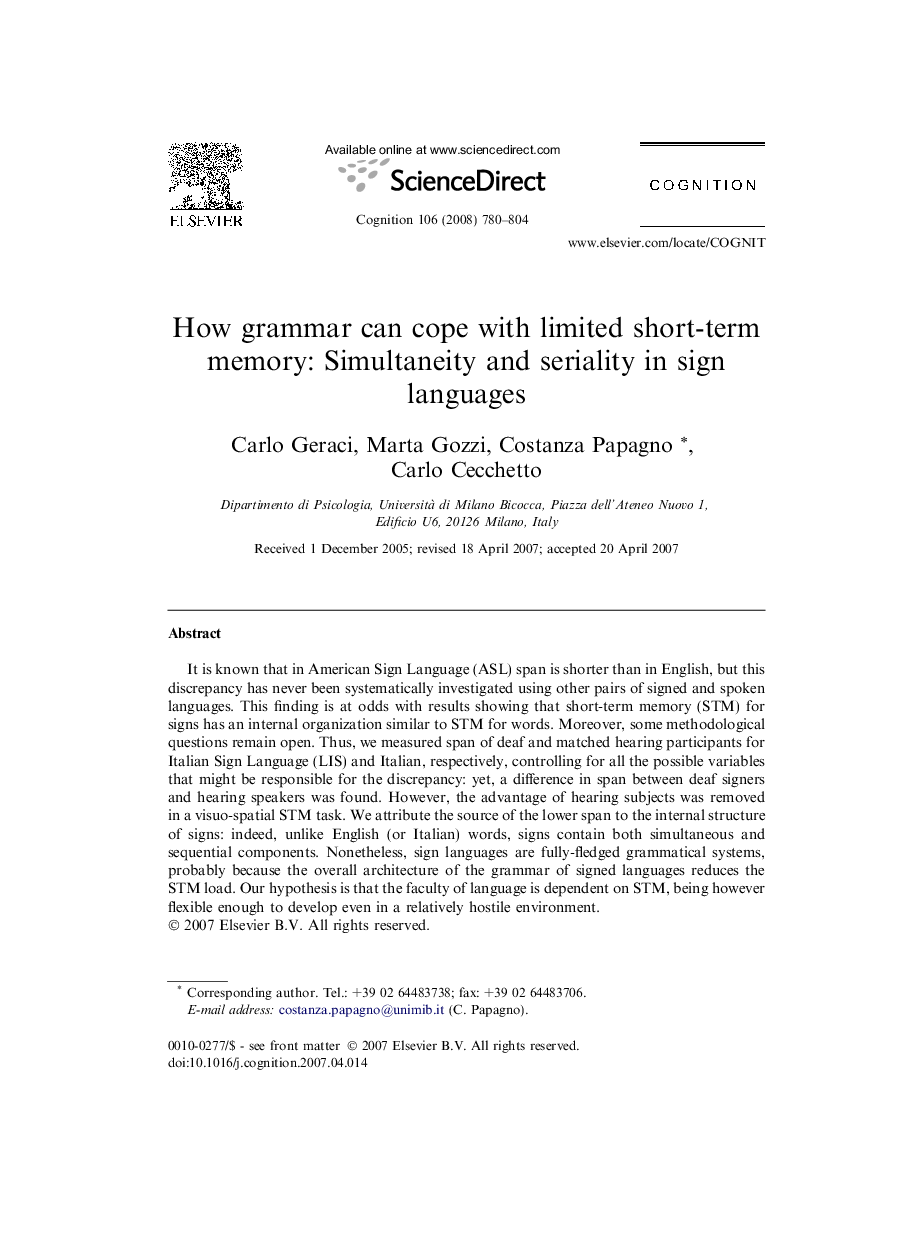| کد مقاله | کد نشریه | سال انتشار | مقاله انگلیسی | نسخه تمام متن |
|---|---|---|---|---|
| 927184 | 921950 | 2008 | 25 صفحه PDF | دانلود رایگان |

It is known that in American Sign Language (ASL) span is shorter than in English, but this discrepancy has never been systematically investigated using other pairs of signed and spoken languages. This finding is at odds with results showing that short-term memory (STM) for signs has an internal organization similar to STM for words. Moreover, some methodological questions remain open. Thus, we measured span of deaf and matched hearing participants for Italian Sign Language (LIS) and Italian, respectively, controlling for all the possible variables that might be responsible for the discrepancy: yet, a difference in span between deaf signers and hearing speakers was found. However, the advantage of hearing subjects was removed in a visuo-spatial STM task. We attribute the source of the lower span to the internal structure of signs: indeed, unlike English (or Italian) words, signs contain both simultaneous and sequential components. Nonetheless, sign languages are fully-fledged grammatical systems, probably because the overall architecture of the grammar of signed languages reduces the STM load. Our hypothesis is that the faculty of language is dependent on STM, being however flexible enough to develop even in a relatively hostile environment.
Journal: Cognition - Volume 106, Issue 2, February 2008, Pages 780–804